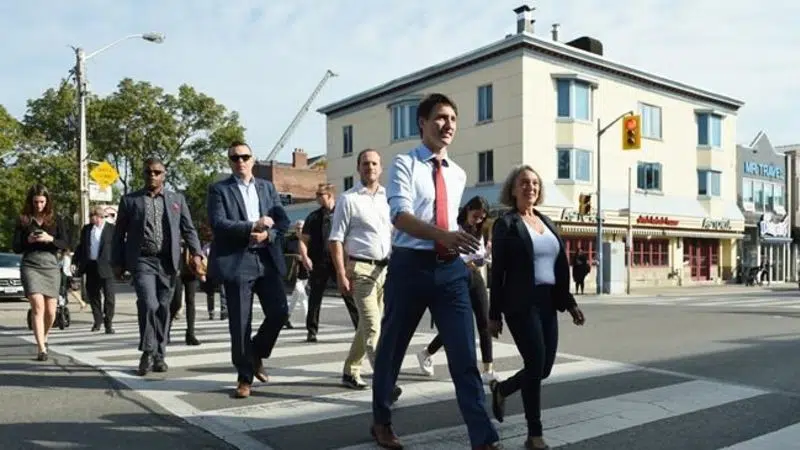
Liberals pitch middle-class savings as second full week of campaign beckons
OTTAWA — The Liberals tried to turn the page on Justin Trudeau’s blackface controversy — and one-up their main rivals — with policy announcements Sunday again aimed squarely at middle-class Canadian wallets.
The Conservatives promised more robust support for Canada’s veterans, while the NDP pledged billions in funding to curb the effects of natural disasters on communities.
Campaign-trail discussion largely shifted back to meat-and-potatoes policy after a steady diet of fallout from Trudeau’s blackface scandal.
Recently discovered images showing Trudeau in black or brown makeup at costume events before he entered politics had dominated the last few days of the campaign — offending many, raising questions about the Liberal leader’s judgment and throwing his party’s re-election efforts into disarray.
